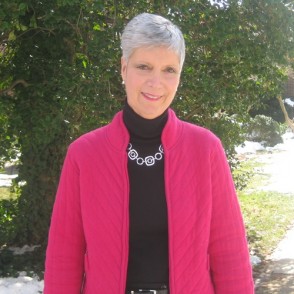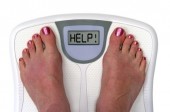Canceled Clients (4762)
Children categories

Train Your Body (438)
The show for fitness buffs or beginners. Expert guest from the American College of Sports Medicine (ACSM) discuss all areas of fitness, nutrition, athletics and sports medicine.
View items...
Staying Well (382)
RadioMD’s “talking” Health A-Z hosted by senior health correspondent, Melanie Cole, MS. Melanie interviews experts in the world of health, wellness, fitness and medicine.
View items...
Healthy Talk w/ Dr. Michael Smith (698)
Integrative physician, Michael A. Smith, MD is committed to providing listeners with the most current health information available.
View items...
Naturally Savvy (899)
Registered Holistic Nutritionist, Andrea Donsky and health expert Lisa Davis discuss their passion for living a natural, healthy lifestyle.
View items...
Eat Right Radio (48)
EatRight Radio, with experts from the Academy of Nutrition and Dietetics, discusses food and nutrition topics, healthy weight, allergies and health conditions, healthy aging, food safety and so much more. Give us 10-minutes and we'll give you the important information and expert advice from registered dietitian nutritionists to help you eat right, feel better, and live a healthier life. Hosted by Melanie Cole, MS.
View items...
Sharecare Radio (235)
Sharecare Radio, hosted by Sharecare’s own Dr. Darria Long Gillespie, SVP of Clinical Strategy at Sharecare, will appear live every Tuesday from 12 to 1 p.m. EST on RadioMD. Dr. Darria will break down the top health news of the week, pull in experts from around the country on a wide array of health topics and answer listeners’ live questions on all things health.
View items...
Wellness for Life (455)
On Wellness For Life Radio you will learn practical, easy-to implement tips to improve your life and start feeling better — the natural way.
View items...
The Wizard of Eyes (163)
Dr. Robert Abel Jr. talks about many of the important and unrecognized parts of our visual system which we so often take for granted. The show covers the usual common ocular disorders with an East/West approach to both prevention and therapy. The eye-brain connection is presented with information about memory retention, Alzheimer's, the myopia epidemic, and many more subjects. Dr. Abel discusses how the eye and vision are connected with remote parts of the body including your gut flora, musculoskeletal system, blood pressure, drugs and lifestyle. practical and simple health tips.
View items...
Code Delicious with Dr. Mike (135)
Code Delicious with Dr. Mike breaks all the rules. Unabashedly confronting the questions, concerns and conundrums that continually confuse both public and experts alike; Dr. Mike takes us on a tasty trip of inquiry.
View items...
CLEAN Food Network (98)
This show is a call to action for all the clean eating revolutionaries that care about their health and how and what they eat. Non-GMO, natural, organic . . . food the way nature intended. The clean food movement is huge and is growing exponentially. This companion program talks to experts in food preparation, healthcare, celebrities, and even those companies that care enough to provide the best, wholesome, organic foods and groceries.
View items...
Talk Healthy Today (213)
Looking to create your best self? Whether it’s good-for-you lifestyle hacks, smarter ways to supplement, or tasty tips to fuel optimal health, Talk Healthy Today brings you the latest research, tools, and common sense tips you need to get and stay healthy... starting today!
View items...
Be a Doer (17)
Be A Doer features master coach and TV personality John Abdo as he shares health and fitness tips aimed at getting you in shape – and keeping you there!
View items...The Power of Probiotics (3)
Probiotics is a major global industry. But like any industry, it had to have a beginning. Natasha Trenev is the daughter of an Eastern European family where the manufacturing of yogurt was a generational business. When Natasha emigrated to the US in the 1960’s, she brought with her 750 years of family experience with probiotics – and introduced the science (and the term itself) to her new country. Today, Natasha’s California-based Natren, Inc. is the recognized pioneer in probiotics and company founder Natasha Trenev has earned recognition as the Mother of Probiotics. Her more than 50 years of work in natural health is at the core of the unparalleled success of her company – and you will benefit from her depth of expertise in each and every episode of THE POWER OF PROBIOTICS.
Probiotics are live microrganisms that are commonly referred to as ‘friendly,’ ‘good’ or ‘healthy’ bacteria that function to help maintain the natural balance of organisms in the intestine. Throughout Natasha’s extensive work in the field of probiotics, she has always been amazed by how nature provides the very ‘good’ bacteria that can help overpower ‘bad’ bacteria to keep our digestive tracts functioning at peak performance. Properly cultivating friendly bacteria and ensuring their potency is at the core of the Natren Process. Natren is cited – by retailers, by the medical community and by consumers – as the best probiotic supplement available. Only Natren carefully chooses its probiotic cultures, formulates and manufactures its industry standard probiotics in its own plant and utilizes a specially-formulated oil matrix to protect probiotics bacteria to survive until they reach their destination in the upper small intestine. This is why only Natren is the most trusted probiotic supplement on the market. Truly, where other probiotic supplements promise – Natren Delivers.
To learn more about how probiotics can benefit your health, we are proud to introduce you to THE POWER OF PROBIOTICS with The Mother of Probiotics, Natasha Trenev.

Your Brain Health (24)
Noted Los Angeles-based neuroscientist and media personality Dr. Kristen Willeumier launches Your Brain Health with Dr. Kristen Willeumier, a podcast series that explores the latest news and information in the burgeoning science of brain health.
View items...Additional Info
- Segment Number 1
- Audio File train_your_body/1508tb2a.mp3
- Featured Speaker Michele Olson, PhD
- Organization ACSM
- Guest Website Michele Olson Phd
-
Guest Bio
 Michele Olson is a Professor of Exercise Physiology in the Department of Physical Education and Exercise Science at Auburn University Montgomery (AUM). Known internationally as THE Exercise Doctor, since coming to AUM Dr. Olson has directed numerous research studies resulting in over 90 publications in peer-reviewed professional journals. Areas of research expertise include:
Michele Olson is a Professor of Exercise Physiology in the Department of Physical Education and Exercise Science at Auburn University Montgomery (AUM). Known internationally as THE Exercise Doctor, since coming to AUM Dr. Olson has directed numerous research studies resulting in over 90 publications in peer-reviewed professional journals. Areas of research expertise include:
-Abdominal Exercise and Pilates;
-Energetics and metabolic responses to Spinning, Pilates, Kettlebells and Tabata exercise;
-Body image and Eating Disorders in active women, dancers and athletes;
-Injury mechanisms with popular fitness activities (Running and Step Aerobics, etc.)
Dr. Olson is a Fellow of the American College of Sports Medicine for outstanding service to research and is also an NSCA Certified Strength and Conditioning Specialist. She heads the NSCA-ERP Exercise Science Program at AUM and well as being the director of the Scharff-Olson Kinesiology Laboratory. - Length (mins) 10
- Waiver Received No
- Host Melanie Cole, MS
Additional Info
- Segment Number 1
- Audio File centra_health/1508ct2a.mp3
- Doctors Ulrich, Beth
- Featured Speaker Beth Ulrich, ACSW, LCSW
- Guest Bio Beth B. Ulrich, ACSW, LCSW joined the Centra Senior Psychiatric Program as Community Liaison to Long-Term Care in September, 2011. She provides evaluations and consultations in addition to interventions such as behavioral management and psychotherapy in an effort to assist patients, families and staff with the often difficult transition and adjustment to living in a long-term care facility. She received her Bachelor’s Degree and Master’s Degree in Social Work from Florida State University and is a Licensed Clinical Social Worker in the state of Virginia. She was the Director of Social Work for Centra for over 20 years before becoming the Program Manager for the county satellite outpatient clinics at Horizon Behavioral Health. Her experience has a combined focus in Social Work Discharge Planning and Case Management as well as Clinical Social Work for seriously mentally ill adults and geriatrics.
-
Transcription
Bill Klaproth (Host): Dementia is a disorder of the brain that impairs memory and function. What are the most common types of dementia, and what are the symptoms? What are the behaviors? And certainly, what are tips for caregivers? All great questions. Here with us is Beth Ulrich. She is the community liaison to long-term care at the Centra Senior Psychiatric Program. Her experience has a combined focus on social work discharge planning and case management as well as clinical social work for seriously mentally ill adults in geriatrics. Beth, thanks so much for being on with us today. Let’s just start right at the beginning. What is dementia?
Beth Ulrich (Guest): Well, dementia is defined as irreversible chronic brain failure that results in the loss of mental ability that involve memory, reasoning, learning, and judgment, including impairment of both short-term and long-term memory.
Bill: Wow! Brain failure. I’ve never heard it described that way, but that really does encapsulate what dementia is. Beth, is Alzheimer’s the most common form of dementia? I think that’s what we hear the most about.
Beth: Yes, Alzheimer’s is the most common form. I’m afraid that people sometimes categorize dementia all under that heading. However, there are several other types of dementia, and sometimes, people even have a combination of say, for example, Alzheimer’s in addition to vascular dementia.
Bill: What are the different types then? Because you just touched on something which I think is very important. What are the different types of dementia? Because we all seem to think, “Oh, they’ve got dementia, they’ve definitely got Alzheimer’s.” But maybe if you can just quickly touch on the different forms of dementia.
Beth: Well, the primary forms that we treat in our program include, of course, Alzheimer disease, which as we were saying, is the most common. This is an irreversible progressive brain disease that slowly destroys memory and thinking skills and, ultimately, the ability to carry out the simplest of tasks. It is caused by plaque, which are abnormal clumps, and tangles, which are bundles of fiber in the brain. Another common form of dementia is vascular dementia, which is typically related to having had strokes or TIA. Alzheimer’s has a steady progression and is somewhat subtle in terms of its initial symptoms and the changes that we notice in individuals. Vascular dementia takes on more of a steppingstone type of a progression as people have strokes and TIAs. Another common form of dementia is Lewy body dementia, which is a rapidly progressive form of dementia. And the onset is often earlier than the typical Alzheimer’s or vascular dementia. We see that in individuals who are perhaps in their late 40s or even early 50s. Symptoms include memory problems, poor judgment, excessive daytime drowsiness, and visual hallucination.
Bill: Okay. Obviously, there’s a lot of forms, and now you’re trying to get to the symptoms, which I think is really important. Because a lot of us as we age, we have memory problems. We forget where the keys are, and there’s a lot of us that probably go, “Oh my God! Am I getting this? I forgot where my keys are. It took me five minutes to find them. Oh my God! Is something wrong with my brain?” Can you tell us what is normal—you’re just getting older and you’re going to forget things more often? And when is it, “Oh, boy. Something may be wrong”? Can you explain that to us?
Beth: Well, as you say, I think it’s normal for people as they get older to sometimes misplace things or maybe forget an individual’s name or a telephone number. But sometimes these are some of the subtle hints that there may be something more serious happening. There are also personality changes that may develop in the early stages of dementia. I think it’s important to at least be aware of the fact that while there are certain behaviors and symptoms that are simply signs of normal aging, it may also be important to be at least somewhat vigilant about being aware of whether or not these particular types of symptoms might increase or worsen as time goes by.
Bill: Okay. Now, when is the point that you go see a doctor, when you say, this is more than just being normally forgetful? What is that point where you say, “I need to call somebody and check this out”?
Beth: Well, I think it’s important to have annual or regular checkups with your doctor, and during the course of those checks have issues related to brain function addressed. There are certain simple diagnostic tools that we use such as the Mini Mental Status exam and other evaluations that are just part of the general medical exam that could point to early symptoms of dementia.
Bill: If you are diagnosed with dementia or Alzheimer’s, what are the treatment options? Have those advanced over the years?
Beth: Well, certainly there have. There have been new medications that have been implemented for patients, and there is certainly so much more education for caregivers and family members, not only in helping them recognize the early symptoms of dementia but also give them better tools in order to provide appropriate intervention for dementia.
Bill: Beth, if someone you love has been diagnosed with dementia or Alzheimer’s, what are the tips for a caregiver in this situation?
Beth: Well, certainly I think that it’s important initially for a caregiver who may not even identify him or herself as a caregiver to be aware of some of the early signs and symptoms of dementia. Often, when we talk to family members, they identify that what they’re experiencing from the patient came on suddenly. But as we take a more comprehensive history of some of the changes in behaviors and memory and other levels of functioning, it becomes quite obvious that the disease may have developed several years ago in the earliest of stages. I think it’s important for all of us to be better educated about some of the things to look for in terms of the early signs of dementia. Then as time goes by and the caregiver becomes more aware of the needs of the patient, it’s very important to avail yourself to the educational materials—and they are abundant now, which is wonderful. There are some wonderful books out that are specifically written for caregivers. There are support groups, and there are just so many opportunities for caregivers to learn how to enter the patient’s world and learn how to communicate with the patient much more successfully. It seems to me that what we were doing and how we were interacting with individuals and family members when they did not have the disease is almost the opposite of what you do when the patient has the disease. For example, behavioral techniques that we used to use with children to help them to learn appropriate behaviors are not at all appropriate in dealing with people with dementia. You really need to meet them where they are and enter their world and allow them to move in their own world and be accepting of that and be understanding of that and be patient with that.
Bill: Well, it’s good to know as we learn more about this, the ways of treating it are changing, and at least it seems like we’re starting to get the edge on how to deal with somebody that has dementia or Alzheimer’s, which is very good news.
Beth: Right, exactly.
Bill: Beth, thanks so much for being out with us today. One more quick question. Why should people come to Centra Health for their mental health needs?
Beth: We have such a comprehensive opportunity for patients from the time that they’re young children until they’re in their senior years. We have both inpatient and outpatient services with a variety of clinicians who have varying levels of expertise to provide. As I say, just a comprehensive opportunity for patients who are dealing with mental health problems.
Bill: All right, Beth. Thank you so much. We really appreciate your time today. For more information on dementia and Alzheimer’s, please visit centrahealth.com. That’s centrahealth.com. This is Centra Healthy Radio. I’m Bill Klaproth. Thanks for listening.
- Hosts Bill Klaproth
Additional Info
- Segment Number 5
- Audio File healthy_talk/1508ht1e.mp3
- Organization Life Extension
- Guest Website Healthy Talk MD
-
Transcription
RadioMD Presents: Healthy Talk | Original Air Date: February 16, 2015
Host: Michael Smith, MD
Alright. Again, 877-711-5211 or AskDrMikeSmith@RadioMD.com.
I’m going to skip the first question and go to the second one I had listed here because I’ve talked about this, I think, a couple times in the recent past. So, I don’t want to, you know, go over this over and over again too many times, but I think it’s a good question. So, I just want to quickly address it and we’ll move on to the next one. “I’m trying to explain to my friend that some of the research against the use of supplements is biased and not always conducted in a fair method. Can you help me educate her on consistent flaws of anti-supplement research?”
Well, sure. And I’ve talked about this before. I think I listed it as the “who”, the “what” and the “how” of research. Who is being tested? What’s being tested and how is it being tested? If you just keep track of those three questions, that will help you to analyze pretty much any publication that’s put out there—good or bad. By the way, there are some legitimate anti-supplement studies out there. I think that’s another issue, actually. I don’t always believe that supplements should be studied in the exact same way as a drug simply because of how they work differently in the body. But, that’s maybe a whole other segment. But here, specifically, when you see a headline, you know, “Fish Oils are Bad for the Heart” or “Fish Oils Don’t Help Heart Patients”, you know, whatever it might be, just ask yourself, the “who”, the “what” and the “how.”
The “who” in most of these studies are unhealthy Americans or sick people. People that are already sick. The reason that I brought up that fish oil one, there was a study that talked about how fish oils were not beneficial in heart patients even though that goes against all kinds of great, positive research with fish oil and heart patients, but, in this particular case, these were patients in this study who had already had one heart attack. I mean, we’re already kind of stacking the odds a little bit against the nutrients. So, in many of the cases, where you ask, “Well, who are they studying?” you’ll find that the answer, in many of these research studies, is they’re studying sick people—people who have already had a disease and they’re just simply trying to prevent another attack or, you know, a progression. So, you’re kind of stacking the odds there.
Number two is the “What are they studying?” What nutrient? So, in that case of the Omega-3s, turns out they were using a nice quality Omega-3, but they were using a low dose. So, they were using a low dose Omega-3. I think they were given, in that study, 500 mg and I’ve always talked about at least 2 grams a day of Omega-3 oils. If you’re dealing with something like a heart issue, you probably want it to be higher than that. You know, maybe 4 grams a day. So, in that particular study, the “what”—fish oil—was low dose. That’s what you’ll often find. That it’s either a low quality, it’s the wrong form of the nutrient, or it’s a low dose. That’s the “what.”
And then, the last one is the “how.” How are they actually collecting the data? You’ll find, in many cases, it’s with surveys. Now, surveys are okay. I mean, we use surveys ourselves here at Life Extension but we understand that we should never draw any absolute conclusions off surveys because they are somewhat unreliable, especially if you’re only asking the person one time in a ten-year timeframe, “Did you ever take fish oil?” Based on that one answer at that one time, if you put them in a fish oil group and you never ask them again, “Are you still taking fish oil?” that’s not a good way to do it. So, surveys are unreliable, especially if you don’t have proper follow up. So, that’s the “who”—usually sick people; the “what”—usually low quality, low dose supplements; and the “how”--surveys. And that’s usually what’s wrong with these anti-supplement studies.
Okay. So there you go.
Let’s go to the next question: “Is nutrient testing, like for neurotransmitters or minerals, reliable?” Yes and no. Don’t you love it when a doctor answers a question like that? “Well, yes and no. Maybe.” The idea of being able to test your body, whether through blood or urine or hair now—whatever it is--being able to test what’s in your system as far as vitamins and minerals and neurotransmitters--it sounds great. No doubt about that. You know, if I really want to know, if I really want to personalize my suggestions for people…Matter of fact, I just wrote a whole book on how to personalize nutritional regimens. It’s called The Supplement Pyramid. Yeah. I need to know that kind of information. So, I do rely on some of this type of testing but there’s a caveat in that and, you know, there’s a disclaimer that I have to throw out there that we haven’t really figured out perfectly how to use a lot of that data.
Let me give you an example.
You take a nutrient test that’s looking at minerals. You know, magnesium, manganese, copper, you know, etc. You know, when I collect that data from you, whether it’s from blood or urine—whatever it is—I collect that data, you know, and ultimately, I’m just looking at a one-time little snapshot of what’s going on in your system at that particular moment in time. So, it does bring in this question. “Well, how reliable are these really?” Let’s say in that snapshot picture, at that moment in time, your magnesium levels were low. Well, does that really mean you have a magnesium deficiency and I should be suggesting more and more magnesium? I mean, you see where some of the questions come in. I mean, if I could test your blood and your urine and your hair throughout the entire 24-hour period when you’re sleeping, awake, stressed, not stressed, and look at all of that data, that might be a little bit more helpful because I’m going to see the peaks and the valleys and I could average it out more. Maybe someday, with technology, we’ll be able to do something like that, but right now, we’re not there. We’re not able to do that, so we have to do the best we can and so we have to take these snapshot pictures. So, nutrient testing is awesome. It gives me a lot of information. It helps me to personalize my suggestions for people. It helps me to tailor my regimens that I build for people and even myself. So, yeah. It’s awesome. But, we have to understand the limitations and we’re just getting these snapshots. So, I do think it’s worth it, especially if you’re willing to get tested on a continuous basis and watch. You know, get a baseline and see where you are a few months later and just keep following it and build that kind of database. If you’re willing to do that and you have the money, that’s great. That gives a lot of information. But, just one mineral test? There’s some issues there. Some reliability issues.
Okay. So, again, my answer. Is nutrient testing reliable? Yes and no.
Okay. Let’s go to the next one. I think. Oh, this is a big one. I’m going to skip that one. I’m going to go to one about Benadryl. The one I’m going to skip was about MS and about family risk and I’ll do that at another one because that’s going to take some time.
“How much Benadryl is an overdose? How much Benadryl is an overdose that can kill? Does taking large quantity damage organs?”
Benadryl is the brand name for a drug called diphenhydramine. It’s a histamine blocker, works against allergies. Yes. Listen. There are well-documented cases of people overdosing with Benadryl. Of course, that’s going to depend on how big you are and how often you’ve taken it, but, you know, high doses of Benadryl can cause blood pressure issues, lots of confusion, delirium. I know, working in the emergency rooms at a big county hospital in Dallas, Texas, they were often abused. You know, drinking with these types of histamine blockers can cause acute toxicity, make you feel high, that kind of stuff. So, yeah, you definitely can overdo it, but there’s no one dose or answer because it’s really based on how often you use it and so I would just stick with the suggested dosing on the packaging.
This is Healthy Talk on RadioMD. I’m Dr. Mike. Stay well. - Length (mins) 10
- Waiver Received No
- Internal Notes NO GUEST
- Host Mike Smith, MD
Additional Info
- Segment Number 4
- Audio File healthy_talk/1508ht1d.mp3
- Organization Life Extension
- Guest Website Healthy Talk MD
-
Transcription
RadioMD Presents: Healthy Talk | Original Air Date: February 16, 2015
Host: Michael Smith, MD
Dr. Mike: Okay, first question. I’m going to spend some time with this one because there’s a lot here. Let me just get into it. “Hi Dr. Smith, a year and a half ago I gained 25 pounds over a 2-3 month period. Every week, I was gaining 2 pounds. Then all of a sudden it stopped, but the weight stayed. At that time I did not change my eating habits, there was no more stress, etc… Nothing happened during that time to explain my weight gain. I had never had weight problems in my whole life before that. Would you know what has happened? What are the possible suspects?” She says: “Thank you so much. Looking forward to your help, Barbara Russ.”
If I can just summarize what’s going on here, there was weight gain. Pretty quick weight gain over a 2-3 month period and no one can really give you any answers, right? This is what we would call acute weight gain. In medicine, when faced with something like this, you know how when you do anything in life, you’re starting a new project or a new charity or a new ministry, whatever it is, you have a brainstorming session? Maybe with yourself or groups of people, whatever it is, and you start listing out things, listing out ideas. In medicine we do the same thing, Barbara. It’s called a differential diagnosis. It’s just a list of the possibilities. You create this list and from there, you start doing your best to weed out some of those choices. Let’s do that together right now. Let’s make a differential diagnosis list for acute weight gain. I’m just going to start listing them all. Some of the things are obvious and probably not what you’re dealing with, but you just list it and get it all out there.
The first, most common reason for weight gain is pregnancy. I’m going to assume that you would know that. I guess you can’t always make that assumption. I’ve seen some of those TV shows where people didn’t know they were pregnant, but I think most people know. I’m going to list that, then take it off the list. Pregnancy is the number 1 thing, but we are going to take it off the list because it’s easy to test.
Number 2 would be low thyroid. This can happen for a variety of reasons: There could be an infection in the thyroid, for instance, it could be an auto-immune attack on the thyroid, but you can knock out thyroid production pretty quickly. When that happens, you will gain weight. Why? Because the thyroid is the metabolic throttle. It runs your metabolism. If, all of a sudden, the amount of thyroid hormone decreases over a short period of time, quickly, that can cause some weight gain. That would be number 2, after pregnancy.
Number 3 on the list of acute weight gain is something called dysthymia. This is kind of like bi-polar disorder, where people have depression, then cycle to being really anxious and having lots of energy, then cycle back to depression. You have those two sides, or poles. Dysthymia is kind of like that but it’s not as bad. Dysthymia is cycling through a little bit of depression, maybe feeling a little blue, and then you cycle out of it and then back. That’s called dysthymia. It’s not as bad as bi-polar disorder, but it’s been known to cause acute weight gain. If you’re dealing with those kind of mood fluctuations, Barbara, that might be something to talk to your doctor about.
Dr. Mike: Diabetes can be associated with acute weight gain. You don’t see it too often, but it can. If you’re not maintaining your sugar level well and your insulin is getting all messed up, that can cause sugars to turn into triglycerides. That can build body fat. That can also be a potential reason. So far we have pregnancy, low thyroid, dysthymia, and diabetes.
Fifth on this list would be menopause. Menopause is not like a light switch. It’s not like: The light is on; you’re menstruating, ovulating, and all that. Then all of a sudden, one day, it just turns off. That’s not how it works. Men don’t know this, but all women know what I’m saying. It’s a process. Actually, before you hit full-blown menopause we call that perimenopausal or premenopausal. That can last years for some women. For some women it is only a few months. For some women it’s many years. For the women that experience perimenopause or premenopause over a very short period of time often can have some weight gain. So maybe we need to look at your estrogen levels, your progesterone levels, and your prolactin levels. Those are all your FSH levels and can be very important in seeing where you’re at in this part of life. That would be number 5.
Number 6 is something called Cushing’s disease. This is where you have high cortisol levels because you have a benign tumor that dumping out a lot of cortisol in your system. Cushing’s disorder, you might want to get your cortisol levels checked.
Next would be polycystic ovarian disease. When you have a lot of cysts in your ovaries it can cause something known as estrogen dominance. That means you are producing lots of estrogen but you are not producing a lot of progesterone to counterbalance it. Estrogen is a tissue builder. Estrogen’s role in a woman, for the most part, is to prepare you for pregnancy. It builds of the endometrium. It builds up the breast tissue. It develops the egg. If you have a lot of cysts in the ovaries sometimes you can over produce estrogen, you can over produce tissue build up and that can cause acute weight gain.
Number 8 would be liver disease. Sometimes, if you are gaining a lot of weight very quickly, it could be an engorged liver; what we call a fatty liver. As a radiologist, I’ve seen a lot of fatty livers on CAT scans. Most of the time people don’t even know they have it. It can be cause by alcohol, but there is also non-alcoholic fatty liver. If the liver is engorged that can cause you to put some weight on and there are a variety of reasons for that.
Next would be pituitary issues. The pituitary gland produces things like growth hormone and stuff like that. If there is a benign tumor in the pituitary gland excreting hormones that can cause acute weight gain.
Last on the list, because most people know if they have a history of it, is heart failure. If your heart isn’t working your fluid retention goes up, you get swollen, that kind of stuff. That can cause acute weight gain.
Dr. Mike: So, Pregnancy, low thyroid, dysthymia, diabetes, menopause, Cushing’s, cysts on the ovaries, liver disease, pituitary, and heart failure. That would be a nice list to work from, Barbara. So what would be your work up, then? How would I approach this after I made my list? The first thing would be to check all the hormones. I would do a good female hormone panel. Not just looking at estrogen, looking at all of it: Thyroid, estrogen, progesterone, all of that stuff. I would even look at growth hormone and prolactin, the pituitary hormones. I might test you for diabetes; maybe does a glucose tolerance test. Then I’d do an ultrasound looking at your ovaries, liver, and your heart to get a good picture if it’s anything internal, structurally, going on.
That’s how I would approach acute weight gain. Start with the differential diagnosis. I gave you a nice list, Barbara. Follow-up on some of those suggestions and please, check with your own doctor on this. Take that list in to your own doctor and see what he or she says. Hopefully that will help. This is Healthy Talk on RadioMD. I’m Dr. Mike, stay well. - Length (mins) 10
- Waiver Received No
- Internal Notes NO GUEST
- Host Mike Smith, MD
Additional Info
- Segment Number 3
- Audio File healthy_talk/1508ht1c.mp3
- Featured Speaker Tonya Winders, Chief Executive Officer of Allergy & Asthma Network Mothers of Asthmatics
- Organization Allergy & Asthma Network
-
Guest Bio
 Tonya Winders, MBA, is currently the President and Chief Executive Officer of Allergy & Asthma Network Mothers of Asthmatics, the leading patient advocacy organization dedicated to ending the needless death and suffering due to asthma, allergies and related conditions.
Tonya Winders, MBA, is currently the President and Chief Executive Officer of Allergy & Asthma Network Mothers of Asthmatics, the leading patient advocacy organization dedicated to ending the needless death and suffering due to asthma, allergies and related conditions.
Tonya has over 16 years experience in leadership roles within the allergy and asthma industry. From sales and marketing leadership to managed markets access, she has worked tirelessly to ensure patients have access to effective diagnostic and treatment tools.
Tonya has worked closely with the leadership of the ACAAI & AAAAI to address challenges currently facing the integrity of allergy and asthma care throughout the U.S. while spreading awareness and preparedness messages to patients and caregivers. Personally, Tonya is the mother of five children, four of whom have asthma and/or allergies, ranging in age from 9-15 years old. She enjoys spending time with her husband of 18 years, Brian Winders, and coaching cheerleading. - Length (mins) 10
- Waiver Received No
- Host Mike Smith, MD
Additional Info
- Segment Number 2
- Audio File healthy_talk/1508ht1b.mp3
- Featured Speaker Tonya Winders, Chief Executive Officer of Allergy & Asthma Network Mothers of Asthmatics
- Organization Allergy & Asthma Network
-
Guest Bio
 Tonya Winders, MBA, is currently the President and Chief Executive Officer of Allergy & Asthma Network Mothers of Asthmatics, the leading patient advocacy organization dedicated to ending the needless death and suffering due to asthma, allergies and related conditions.
Tonya Winders, MBA, is currently the President and Chief Executive Officer of Allergy & Asthma Network Mothers of Asthmatics, the leading patient advocacy organization dedicated to ending the needless death and suffering due to asthma, allergies and related conditions.
Tonya has over 16 years experience in leadership roles within the allergy and asthma industry. From sales and marketing leadership to managed markets access, she has worked tirelessly to ensure patients have access to effective diagnostic and treatment tools.
Tonya has worked closely with the leadership of the ACAAI & AAAAI to address challenges currently facing the integrity of allergy and asthma care throughout the U.S. while spreading awareness and preparedness messages to patients and caregivers. Personally, Tonya is the mother of five children, four of whom have asthma and/or allergies, ranging in age from 9-15 years old. She enjoys spending time with her husband of 18 years, Brian Winders, and coaching cheerleading. - Length (mins) 10
- Waiver Received No
- Host Mike Smith, MD
Additional Info
- Segment Number 1
- Audio File healthy_talk/1508ht1a.mp3
- Organization Life Extension
- Guest Website Healthy Talk MD
- Length (mins) 10
- Waiver Received No
- Internal Notes NO GUEST
- Host Mike Smith, MD
Additional Info
- Segment Number 5
- Audio File wellness_for_life/1507wl5e.mp3
- Featured Speaker Susanne Bennett, DC
- Guest Website Dr. Susanne
- Length (mins) 10
- Waiver Received No
- Host Susanne Bennett, DC
Additional Info
- Segment Number 4
- Audio File wellness_for_life/1507wl5d.mp3
- Featured Speaker June Saruwatari
- Book Title Behind the Clutter: Truth.Love.Meaning.Purpose
-
Guest Bio
 June Saruwatari, author of Behind the Clutter: Truth.Love.Meaning.Purpose, delves into what is BEHIND the clutter--the layers of mental, spiritual and emotional “stuff” that tend to manifest in the form of physical clutter in our lives. A lifestyle, business, and relationship coach, productivity and organizing consultant, inspirational speaker, and founder of The Organizing Maniac™, June has helped people declutter their minds, hearts, spaces, and stuff to create lives and businesses they love! The co-host of TLC's first season of Home Made Simple, June has appeared on The Nate Berkus Show and has contributed to publications such as Woman's Day, 31 Words to Create an Organized Life, and Practically Posh.
June Saruwatari, author of Behind the Clutter: Truth.Love.Meaning.Purpose, delves into what is BEHIND the clutter--the layers of mental, spiritual and emotional “stuff” that tend to manifest in the form of physical clutter in our lives. A lifestyle, business, and relationship coach, productivity and organizing consultant, inspirational speaker, and founder of The Organizing Maniac™, June has helped people declutter their minds, hearts, spaces, and stuff to create lives and businesses they love! The co-host of TLC's first season of Home Made Simple, June has appeared on The Nate Berkus Show and has contributed to publications such as Woman's Day, 31 Words to Create an Organized Life, and Practically Posh.
- Length (mins) 10
- Waiver Received No
- Host Susanne Bennett, DC
Additional Info
- Segment Number 3
- Audio File wellness_for_life/1507wl5c.mp3
- Featured Speaker Anna Cabeca, OB/GYN
- Guest Website Sexual CPR
- Guest Facebook Account facebook.com/CabecaHealth
- Guest Twitter Account @CabecaHealth
-
Guest Bio
 Dr. Anna Cabeca is a board certified Gynecologist and Obstetrician, as well as board certified in Anti-Aging and Regenerative Medicine, an expert in Functional Medicine, and an expert in women’s health. She specializes in bioidentical hormone replacement therapy and natural alternatives, successful menopause and age management medicine. Dr. Cabeca earned her medical degree from Nova-Southeastern University of the Health Sciences in Florida. Since completing her residency at Emory University in Atlanta, Georgia, she has maintained a private practice in Southeast Georgia.
Dr. Anna Cabeca is a board certified Gynecologist and Obstetrician, as well as board certified in Anti-Aging and Regenerative Medicine, an expert in Functional Medicine, and an expert in women’s health. She specializes in bioidentical hormone replacement therapy and natural alternatives, successful menopause and age management medicine. Dr. Cabeca earned her medical degree from Nova-Southeastern University of the Health Sciences in Florida. Since completing her residency at Emory University in Atlanta, Georgia, she has maintained a private practice in Southeast Georgia.
Dr. Cabeca frequently lectures nationally and internationally regarding restorative health and women’s health issues. She is a consultant and trainer for other physicians in Bio-Identical Hormone Replacement Therapy and Functional Medicine Principles.
A mother of five, Dr. Cabeca is a native English speaker who is conversant in four languages. Growing up in a multi-lingual and cultural household nurtured her love for international medicine and travel, which she pursues to this day. She has traveled around the world learning healing modalities from leading physicians, scientists, and other practitioners across Asia, Europe, the Middle East, Africa, and South America.
Her belief is that the advantages of creating health and hormone balance are that we not only improve our own health, but also improve the health of our generations to follow.
She is the co-creator of the Sexy Younger You telesummit and the creator of the highly acclaimed virtual transformational programs: WomensRestorativeHealth.com and SexualCPR.com. - Length (mins) 10
- Waiver Received No
- Host Susanne Bennett, DC














